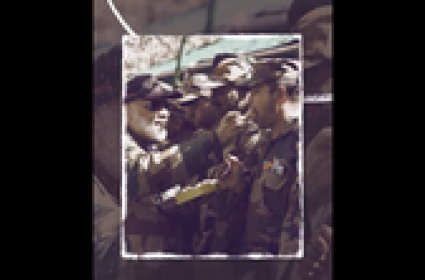New Delhi, Mar 5 (IANS): Prime Minister Narendra Modi’s ‘Mera Bharat, Mera Parivar’ assertion at a public rally in Telangana’s Adilabad district has struck a good chord with the audience, and also enabled the Bharatiya Janata Party (BJP) to seize the moment, especially in light of the Opposition hurling slurs at him.
The ‘Modi ka Parivar’ discourse backed by BJP ministers and leaders centres around PM Modi’s commitment towards 140 crore citizens of the country. It also boasts about his desire to serve the nation since his childhood.
A Twitter handle titled 'Modi Archive' released a series of short stories on Tuesday, giving a peek into the life of young Modi and his penchant for keeping 'nation's interests above self'.

The 2.48-minute long video, portraying his life since childhood, shows that since early age, he had an inherent desire towards serving his ‘Parivarjan’. Since childhood, he dreamt of serving the nation and keeping its interest over his own.
It says that Narendra Modi in his childhood had many conflicting thoughts in mind like “what is the purpose of life if not to live for others? What is the purpose of our being?"
During his growing up years, he understood very early that helping others was not a favour, but his duty. He developed a strong desire and passion to serve his country and soon he found a path to channelise that energy.
Narendra Modi’s father used to sell tea at the Vadnagar railway station and he used to assist his father.
He used to serve tea to jawans also, who travelled in trains. He developed a strong passion for the Army and also wanted to join the armed forces. He wanted to study at the Sainik School in Jamnagar, but the economic hardships prevented him from doing so.
However, this didn’t prevent him from pursuing his love for the Army. During the India-Pakistan war, Army personnel used to commute on trains, and often crossed the Mehsana railway station. A young Modi used to visit the Mehsana station daily via bus, just for getting a glimpse of the jawans in Army uniform.
Notably, PM Modi has in his speeches often reminisced about his desire to join the Army. However, fate had some other plans for him -- to serve Mother India.
As a child, he joined the NCC and nursed the desire to serve the country. The ‘Seva Bhaav’ in him remained intact and for many years now, he has been serving the country in multiple roles, from Chief Minister to Prime Minister.
It’s his devotion and love for the armed forces that has made PM Modi turn his Diwali celebrations with jawans into a ritual. Every year, he visits some border outposts where he celebrates the festival of lights with the jawans.
The controversy over PM Modi’s ‘Parivaar’ emanated after RJD supremo Lalu Prasad launched a vilified attack at a public rally in Patna, saying that the former did not have a family.
Giving a befitting reply the next day, PM Modi called the entire nation his family. Also, his ‘pavivarjano’ pitch in every speech makes the message loud and clear.